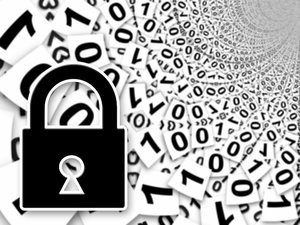 The Internet of Things hopes to bring a new wave of connectivity options to seemingly mundane devices including your refrigerator and other household appliances. This new age of connected devices has already begun – thermostats have already been released that make your home or office “smart”, allowing you to control them with your smartphone from virtually anywhere. However, with these new kinds of connectivity, businesses now have an unprecedented ability to collect personal data about you and your habits that has prompted a warning from the U.S. Federal Trade Commission.
The Internet of Things hopes to bring a new wave of connectivity options to seemingly mundane devices including your refrigerator and other household appliances. This new age of connected devices has already begun – thermostats have already been released that make your home or office “smart”, allowing you to control them with your smartphone from virtually anywhere. However, with these new kinds of connectivity, businesses now have an unprecedented ability to collect personal data about you and your habits that has prompted a warning from the U.S. Federal Trade Commission.
Potential Privacy Threat
Edith Ramirez of the FTC has warned consumers and businesses that these devices have the potential to collect vast amounts of what until now has been personal data on someone’s habits, credit card purchases, family, friends and even religious practices. These data could create a more complete personal picture of an individual that might not be pertinent, but could alter a person’s ability to, for example, obtain employment due to a false impression that it might create. Some fear it could even go farther and sour a university or college against a potential candidate seeking education after high school or prospective employers for applicants of all ages.
Positive Potential
The FTC has acknowledged that the Internet of Things and the data it can collect could bring about some positive reforms as well that could improve health and even boost the potential for economic growth for both businesses and individuals. At the same time, companies can use these data to further develop their products to bring consumers the gadgets they want and need, enhancing the quality of life for all involved. However, the FTC believes these benefits shouldn’t come at the expense of an individual’s privacy rights.
Business Responsibility
Businesses will be the entities collecting and sorting through this vast amount of data, and the FTC urges companies to proceed with caution and only collect data that is relevant and necessary. The data that are collected should be handled with great care, and companies should work diligently to not paint a potentially-inaccurate picture. On top of that, companies must be responsible with sharing this information to ensure a person’s rights are not violated, and that they are not harmed in any way as a result of the collection.
The Internet of Things will no doubt be the next big Internet revolution, and in the coming years more and more of our possessions, such as our houses and cars, will become increasingly connected to the Internet. This will allow us more control and customization than we have ever had before. With that connectivity also comes the ability of businesses to collect and learn more about our habits and even tell them much more personal information. It is up to businesses to handle this amount of data responsibility and remember the privacy rights of all concerned.